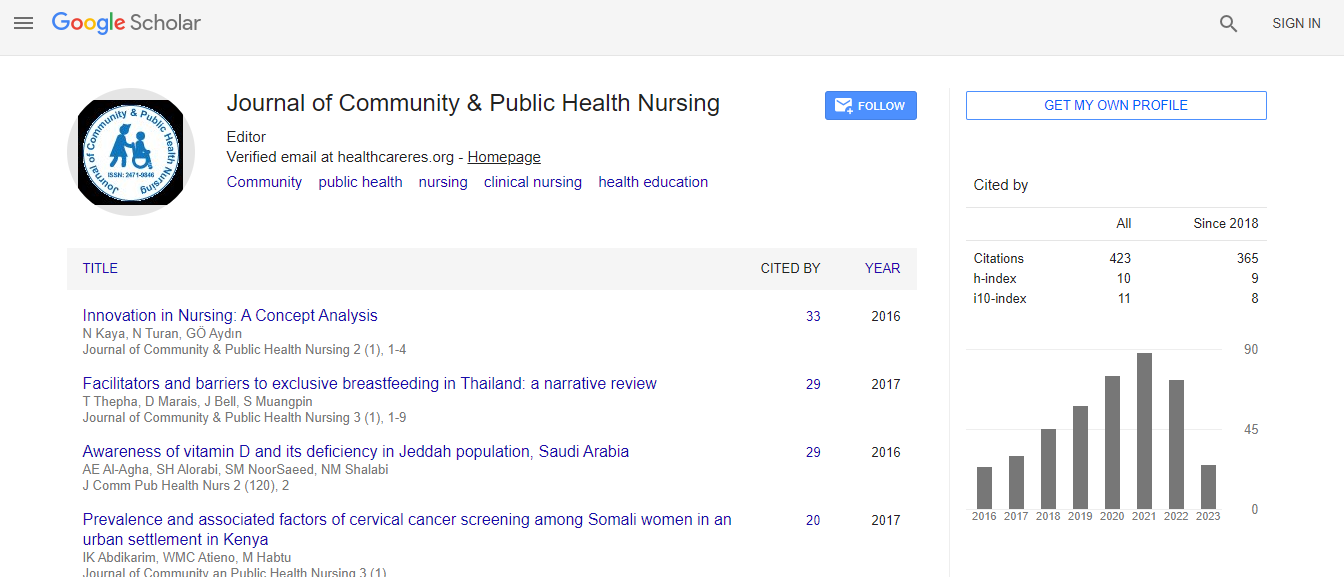Research Article
Comparison of Awareness of Men and Women on Maternal, Neonatal and Child Health in Urban Afghanistan
Naqibullah Hamdard1* and Anwar Haneef21Ministry of Public Health, Kabul, Kabul 0093, Afghanistan
2Care International, Kabul, Kabul 0093, Afghanistan
- Corresponding Author:
- Naqibullah Hamdard
MoPH, EOC, Consultant Kabul, Kabul 0093, Afghanistan
Tel: 0093795590772
E-mail: nhamdard3@hotmail.com
Received date: December 14, 2016; Accepted date: January 27, 2017; Published date: February 03, 2017
Citation: Hamdard N, Haneef A (2017) Comparison of Awareness of Men and Women on Maternal, Neonatal and Child Health in Urban Afghanistan. J Comm Pub Health Nursing 3:157. doi:10.4172/2471-9846.1000157
Copyright: © 2017 Hamdard N, et al. This is an open-access article distributed under the terms of the Creative Commons Attribution License, which permits unrestricted use, distribution, and reproduction in any medium, provided the original author and source are credited.
Abstract
The level of men’s awareness on Maternal and Child Health (MCH) is largely not researched in Afghanistan. The interventions to increase men knowledge and awareness on maternal and children health have not systematically been studied. This is a cross sectional study which compares men and women’s awareness on maternal and children health dimensions in an urban setting in Afghanistan. Care International’s health program has implemented community based women and child health project in 2nd district of Kabul city. The project’s interventions included: 1) Undertaking community based surveillance of mothers of reproductive age. 2) Organizing health education sessions on safe motherhood, child care, and birth planning for mothers enrolled in surveillance through house to house visits. 3) Establishing community support groups to facilitate peer to peer education on pregnancy danger signs, pregnancy complications, and accessing quality care 4. Establishing Community Health Centers (CHC), where community midwives receive basic uncomplicated cases. The project is planning to involve men to support women’s health care seeking behavior. The respondents covered 119 men and 341 women living in the same district. The data collection team utilized random sample selection approach to interview the respondents.
Overall men’s awareness on MCH except on the age of mother at first birth was negligible. Men preferred a higher age for a woman to give birth to their first baby comparing to women themselves. Men also rated highly whether underage marriage poses risks to women and their children. Women and men both awareness on long term birth spacing methods, was minimal or non-existent. They also confirmed that husbands are the prime decision makers to select the location for the delivery. Women Men didn’t respect women’s birth spacing choices and they didn’t have sufficient knowledge about pregnancy complications. Women weighed higher the importance of completing Ante Nata 1 Care (ANC) than men.

 Spanish
Spanish  Chinese
Chinese  Russian
Russian  German
German  French
French  Japanese
Japanese  Portuguese
Portuguese  Hindi
Hindi 
